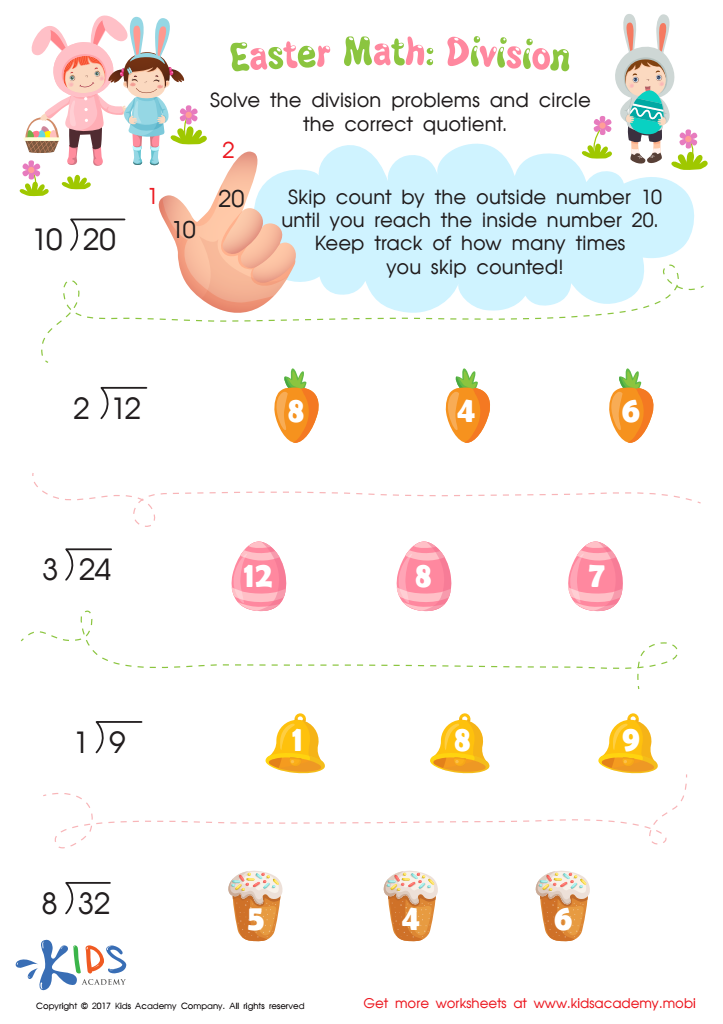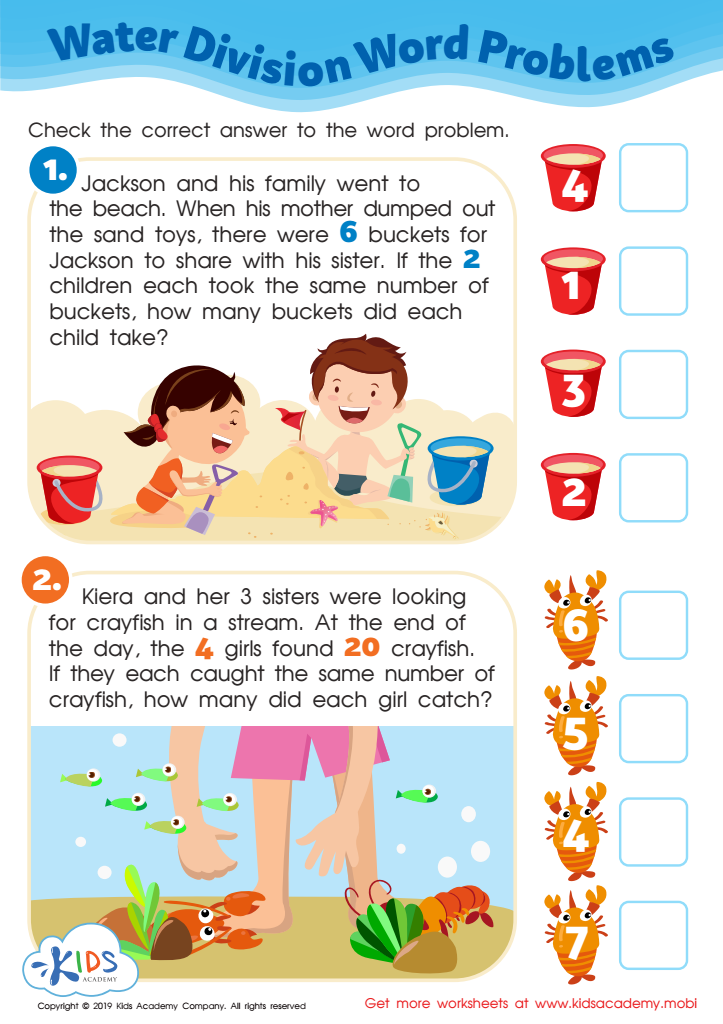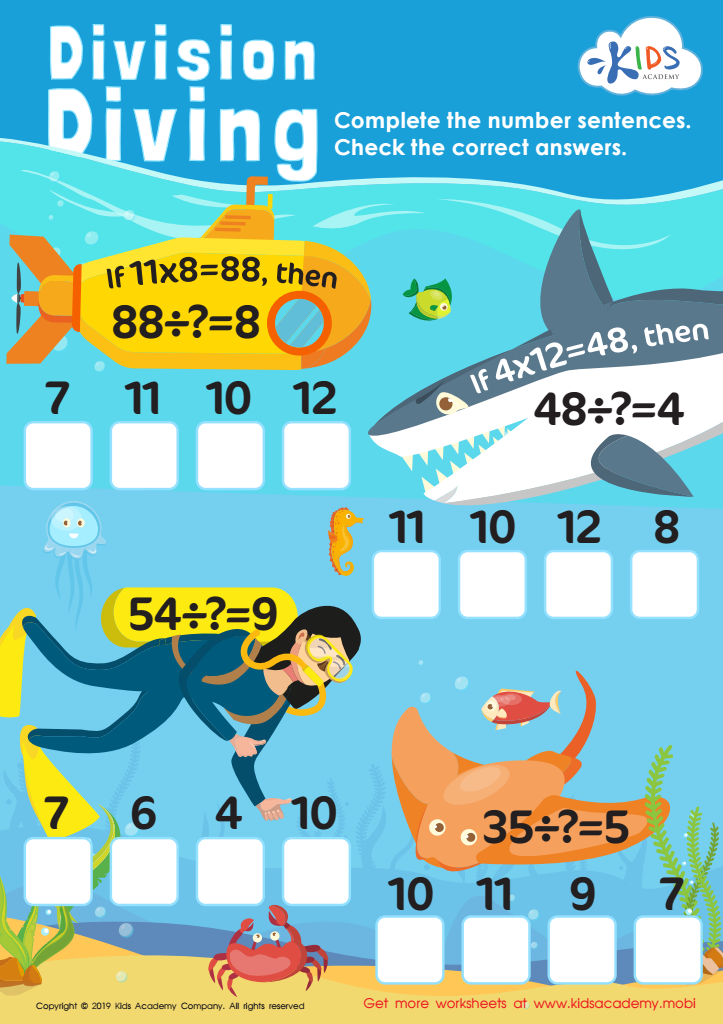Mathematical reasoning Normal Division Worksheets for Ages 3-8
3 filtered results
-
From - To
Explore our engaging "Mathematical Reasoning Normal Division Worksheets" designed specifically for young learners aged 3-8! These worksheets introduce the foundational concepts of division through fun, interactive tasks that promote critical thinking and problem-solving skills. Each activity is crafted to make math enjoyable, ensuring that children build confidence as they learn to break down and understand division. Our resources include visually stimulating exercises, appealing illustrations, and user-friendly formats tailored for early learners. Whether in the classroom or at home, these worksheets serve as an excellent tool to foster a strong mathematical foundation. Start building your child's math skills today!


Division Worksheet


Water Division Word Problems Worksheet


Division Diving Worksheet
Mathematical reasoning in early childhood, particularly concerning normal division, is crucial for laying a strong foundation for future learning. From ages 3 to 8, children are naturally curious, and fostering their understanding of division helps them make sense of the world around them. By introducing division concepts at this stage, parents and teachers can nurture critical thinking and problem-solving skills.
Normal division isn't just about sharing or grouping; it encourages children to decompose numbers, recognize patterns, and establish relationships between quantities. This cognitive progression enhances their overall mathematical fluency. Developmentally appropriate activities, such as using manipulatives or engaging in simple word problems, can help children intuitively grasp the division concept and its practical applications.
Moreover, children who develop a solid understanding of mathematical reasoning in early years are more likely to approach future math topics with confidence, thus positively impacting their academic journey. Encouraging discussions around division also promotes communication skills, as children learn to articulate their thought processes. Ultimately, by prioritizing normal division reasoning, parents and educators empower children not just in math, but in equipping them with essential life skills like logical thinking, perseverance, and the ability to tackle complex problems.
 Assign to My Students
Assign to My Students















